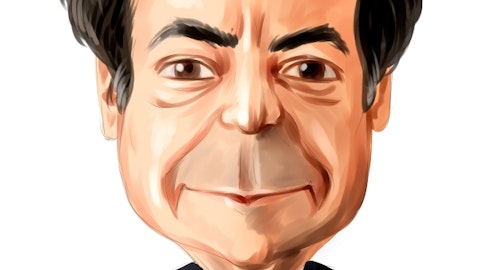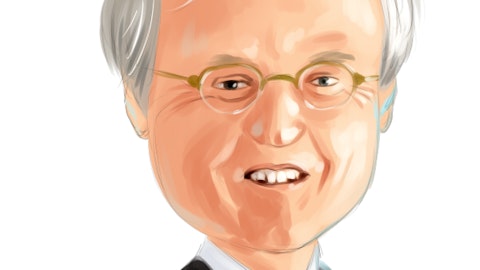The quest for Truth is a lifetime’s pursuit and one’s never too young or too old to start their journey towards it. For 22-year-old David Fichman, that journey began with his organization Bootcamp. With his company, he is committed to sharing his tools for compassion, empathy, and success with others. We got to know the young juggernaut better in a candid conversation where he shared his thoughts about the self-help industry and what the future holds for it.

David Fichman
Q. What are the greatest positives present in the self-help industry?
I think that would be the fact that there are genuine individuals and companies at large that want to make a difference in the lives of others. These individuals are realistic and even keep their marketing and advertising away from tales of “wholesome utopia guaranteed in ten 10 days”, so to speak.
The presence and success of such an industry indicates one thing – that there people out there who need help and have nowhere else to turn to. These individuals come from different walks of life and have either failed, or become saturated in their personal lives, relationships, friendships, or careers. They come to our industry to seek guidance and hope. And some of the turnaround stories that one hears in our circles are indicative of the fact that the teachers or mentors have done their jobs well. I believe that the fact that this industry has recognized the need for its presence is its greatest advantage.
Q. What, in your estimation, is presently wrong with the self-help industry?
To begin with, I would say it’s the terminology. I would rather have the industry change its name to ‘help-self’ than continue with ‘self-help.’ You see, this small change can make people see it as a truly dynamic avenue that the industry has the potential to be, and not an oversized emotional crutch.
Everyone needs help. The only thing is that the ones trying to offer help in the form of actionable insights, tools, practices, etc are those who have applied them in their personal lives and experienced positive changes. Most importantly, those who have a soft corner for the people of the world. They have understood that the only thing they can offer is their own experience and hope that their insights can be made use of by others.
Unfortunately, the present-day “self-help” industry, although there are exceptions, is using the power of words to reinforce perceptions of guilt, shame, and inferiority. In my eyes, this makes them no better than Big Pharma that ensures that people’s perception of health depends on the presence of drugs, rather than its absence. To put it succinctly, from renaming to re-assessing the role they wish to play in people’s lives, it’s time for our industry to take a step back and take a good, hard look at itself.
Q. What are some of the best available self-help tools for a stress-free life?
Well, there are many. But the ones that I feel have proven their worth over time are the following three:
- Know yourself
Know yourself, or as it reads on the Oracle of Delphi, “Know Thyself”, is the foundation on which one builds one’s life. To know oneself is to know one’s limitations and one’s potential to break free from those limitations. It’s a lifetime’s pursuit and when done in the fullness of heart and presence of mind, can help individuals bring out their core personality to the surface, one they no longer need to battle with.
- Learn “when and why” to say yes or no.
Most mentors restrict the pathway to a stress-free life for those who come to them by telling them only half the story. The point is not just to say no, but to understand when and why to say yes or no. After all, the idea isn’t to just wage an open rebellion, and sooner or later, the consequences of such an advice will become unpleasant and beyond one’s ability to comprehend or control. The right mindset would be to put in the effort to assess a situation and say yes or no based on your ability and availability.
- Develop a hobby
Developing a hobby is like finding a new door inside an old mansion. It will lead to discoveries, new perspectives and when pursued diligently, become a sanctuary of peace and calm.
Q. In your company Bootcamp, you have often encouraged participants to relook at competition. Can you tell us a little more about that?
Bootcamp is primarily focused on the search for truth. We achieve truth through removing the obstacles which cloud our objective perspective of a relationship, circumstance, or problem. This pursuit has led us to attempt to deconstruct the idea of competition and what it means to be an individual in a society that focuses heavily on ranking, grading, and pinning individuals against one another. Here, we believe there is a lot to be gained from the simple understanding that the metrics by which we measure one another (intelligence, competence, etc) are vast and fluid, subjective, and in some cases unfairly constructed. This understanding can bring comfort to those who are overcome with anxiety and doubt about their merit and self-worth.
Q. What, according to you, is the future of the self-help industry?
I believe it’s bigger than ever. Sure, COVID-19 has its role to play in it. But it’s not just that. The world at large is evolving in its understanding and experience of success, failure, aspiration, desire, regret, shame, and more. Life has become a collective experience and many people will find it hard to cope with constant changes and the demands these changes put on them. It may well be the coming of the golden era of the self-help industry and therefore the best time for it to pull up its socks and learn to separate the wheat from the chaff.





